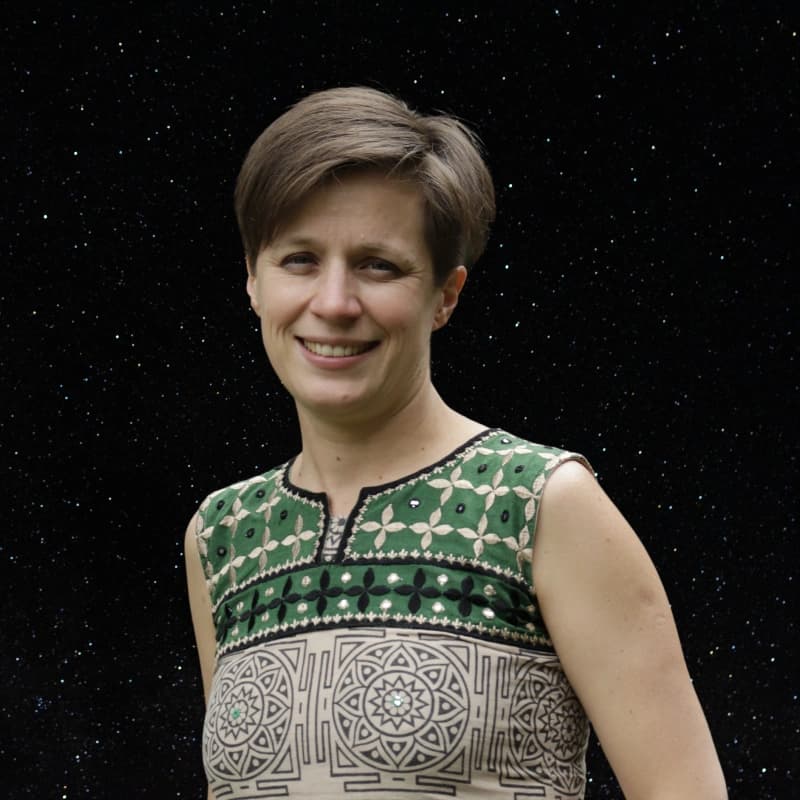

I am an associate professor from the Institute of Astrophysical Studies at the Diego Portales University in Santiago de Chile and I am part of the faculty body of the Institute of Astrophysical Studies at the Engineering and Sciences Faculty. Currently I am director of the PhD program in Astrophysics and am lead of the Galactic and stellar astrophysics research group.
My career as an astrophysicist started at the Pontifical Catholic University in Santiago de Chile where I did my bachelor studies and had the chance to be fascinated about stars. I obtained an IMPRS fellowship to do my PhD at the Max Planck Institute in Garching, Germany, obtaining my degree from the Ludwig Maximilian University with a thesis entitled: "The age of the Milky Way halo stars. Implications for Galaxy formation". My acquired expertise on stellar spectroscopy led me to work on a postdoctoral position at the Laboratoire d'Astrophysique de Bordeaux in France, where I worked on reference stars for Gaia, assembling the widely-used Gaia benchmark stars. That fundamental work then helped me to do a second postdoctoral job for the Gaia-ESO Survey at the Institute of Astronomy at the University of Cambridge, where I also became a member of the King's College. Through my association to this college, I started expanding my scientific network beyond astronomy, and developing the concept of Galactic phylogenetics which joins the discipline of evolutionary biology with astronomy.
All scientific publications can be found in the NASA-ADS website and my OrcID profile can be found here.
Highlights
 2024ERIS on *The Sky at Night* by BBC
2024ERIS on *The Sky at Night* by BBC 2024Danielle de Brito Award for the Best Doctoral Thesis 2024 UDP
2024Danielle de Brito Award for the Best Doctoral Thesis 2024 UDP 2022Workshop "New Benchmark Lines for the Gaia Benchmark Stars"
2022Workshop "New Benchmark Lines for the Gaia Benchmark Stars" 2019
2019 2019Annual Reviews on Astronomy and Astrophysics: Accuracy and Precision of Industrial Stellar Abundances
2019Annual Reviews on Astronomy and Astrophysics: Accuracy and Precision of Industrial Stellar Abundances 2019
2019 2017
2017 2016
2016
Personal Approach
For me, being a scientist means contributing to new knowledge in human history. This implies scientists are in a constant back-and-forth in experimenting with concepts that very few people (or nobody) knows. The more at the front of knowledge we are, the more we touch uncharted territories. While very exciting if something works, this can be frustrating if the experiments fail. The latter usually happens more often.
Because science can be such an emotional process, my approach aims to acknowledge that both the successes and failures of scientific research are necessary. I have come to realize that it is easier and more fun to handle these emotions when projects and activities are shared. Indeed, I am very proud to have accreted along my career a large number of colleagues who became good friends. They are of all ages, come from many countries and a variety of disciplines. I find it extremely motivating to win research grants which allow me to keep contact with them but also allow me to meet new people who challenge my understanding of the world with their own perspectives.


